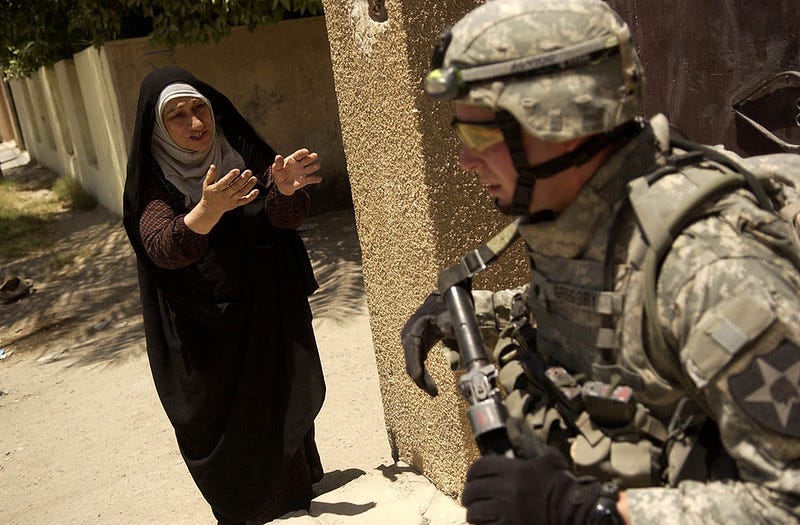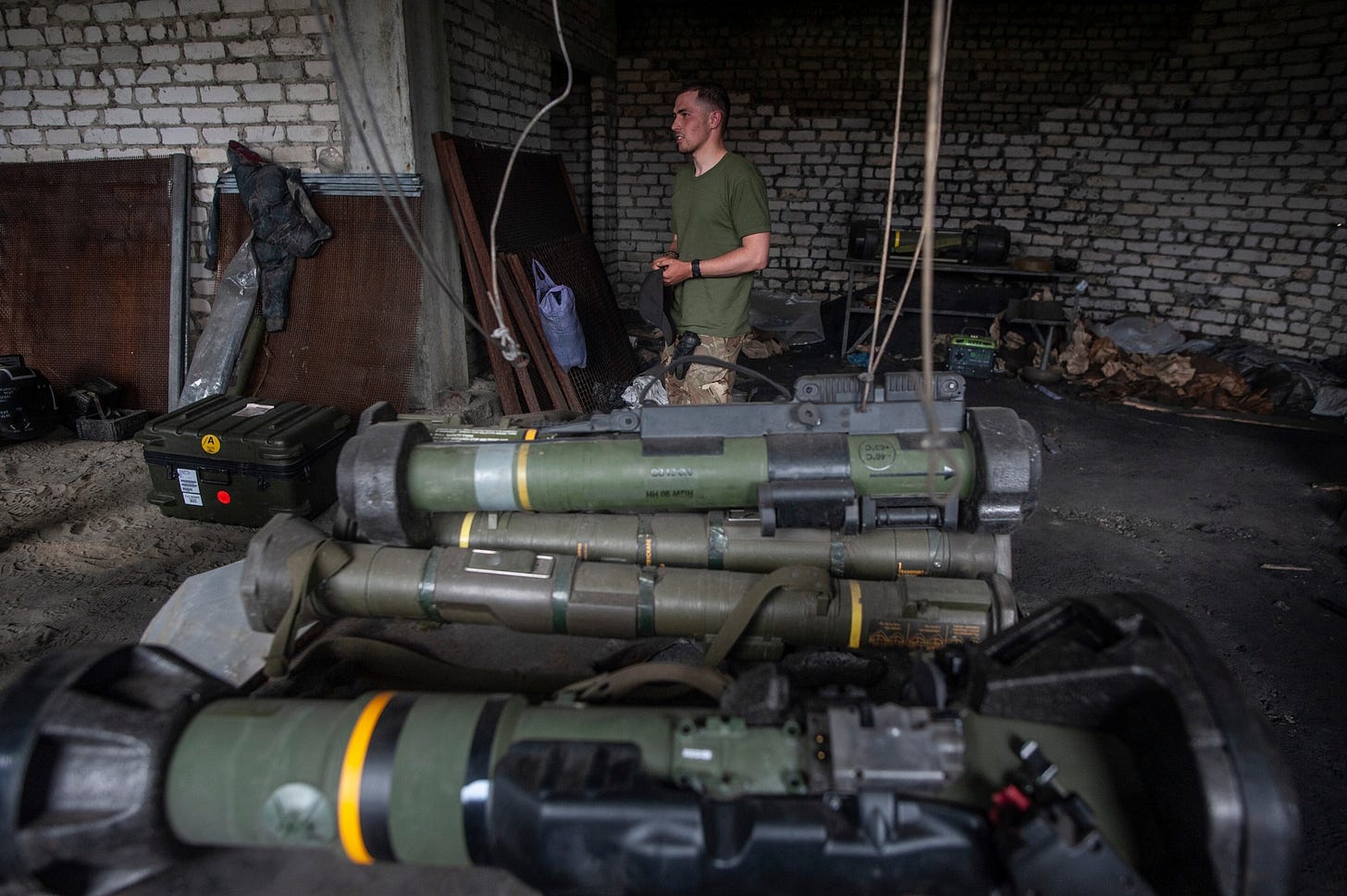20 years later, we've learned the wrong lessons from Iraq
Why the Iraq War should have driven us toward solidarity, not isolationism

I’m taking a break from the usual to publish a more personal essay here this time around. Enjoy! Or don’t
In the wake of the twentieth anniversary of the American invasion of Iraq in 2003 this past week, I’ve found myself unable to remember where I was at the start of the war, throughout the horrifying shock and awe campaign, or during the collapse of Saddam Hussein’s government that followed. I was a child at the time, and even though I had been aware of events like 9/11 two years earlier, I had no conscious understanding of the political spiral those attacks had triggered.
But the events of spring 2003 and the war that followed came to play a foundational role in my conception of American foreign policy for years to come, as they did for many people in my generation. Iraq was the first time we saw our country driving world history before our eyes, and the first time we had to reckon with the devastating consequences of the American exceptionalism and manifest destiny we were being taught about in school. As we watched the self-righteous jingoism of the invasion give way to the frustrated brutality of the occupation and to finger pointing about what went wrong, we were faced with the reality that our country had lied to us, and in its hubris, had sacrificed a nation to feed its ego.
As a result, the knee-jerk reaction of many observers across the political spectrum has been to recoil into a position of isolationism since the Bush years, perhaps understandably deciding that if Iraq is what happens when America gets involved overseas, it should never do so again. There was a time when I had sympathy for this position. But the world had other plans, and the history of the 21st century since 2003 has made it difficult to hold this belief in good faith. By what logic did America refuse to act decisively when, a decade after the invasion of Iraq, Bashar al-Assad gassed his own people in Ghouta after rebelling Syrians had begged the US for help? Why, in a bid to extricate itself from Afghanistan and rid itself of the last vestige of its post-9/11 military adventurism, did America abandon millions of Afghans to the whims of the Taliban in 2021 despite pleas to the contrary?
The crime of our invasion of Iraq left Americans with a distaste for military involvement internationally, but it also led us to commit crimes of inaction by convincing us that standing by to watch horrors take place is better than risking getting our hands dirty. Perhaps only during the US campaign against ISIS did we agree that there are certain evils we were still willing to fight against, but even then, voices soon piped up comparing America’s limited involvement in northeastern Syria to Iraq. Today, during Russia’s ongoing invasion of Ukraine in which we’ve chosen to support the Ukrainian government with funds and weapons rather than get involved ourselves, the invasion of Iraq continues to cast its long shadow over ever bullet we send to Kyiv.

It’s a good thing that the suffering we forced upon Iraq has humbled us and given us pause over these last twenty years. But in our self-reflection, we have in large part taken away the wrong lessons from our failure. The United States has been the architect of the global order for at least the last three and a half decades, and for both better and for worse, the power we wield as a result has allowed us to effect the course of human lives across the world. In Iraq, we did exactly that out of pride, paternalism, racism, and the belief that America could do no wrong. What we didn’t do was give a single shit about what the Iraqi people actually wanted — and that’s exactly the same mistake we’ve made by failing to respond when victims of state terror in Syria, Afghanistan, and elsewhere recognized America’s capacity to be a decisive ally in their self-liberation, and implored us to use our power for their benefit.
Twenty years after Iraq, watching the US support Ukraine in its existential struggle without exposing itself to the same pitfalls that doomed it in 2003 gives me hope that we are finally beginning to see the forest for the trees. As an imperial hegemon, America’s international involvement can never be fully divorced from its geopolitical interests — but in some pivotal instances, it is possible for the US to pursue its agenda in tandem with the aspirations of people fighting against oppression, autocracy, and subjugation around the world.
Ukraine is one such opportunity, and we cannot give way to apathy or the misguided idea that American support is exacerbating the conflict and that Kyiv should capitulate to Russia merely to end fighting. If we do, we will have made the same mistake we’ve made in Syria, Afghanistan, and other places around the world, where we decided not to listen, and instead allowed our misreading of Iraq to stop us from correcting course and doing what we should have been doing all along. Provided that Ukraine truly becomes a new beginning in how the US approaches international involvement — military or otherwise — the tragedy of Iraq will not have taken place for nothing.



